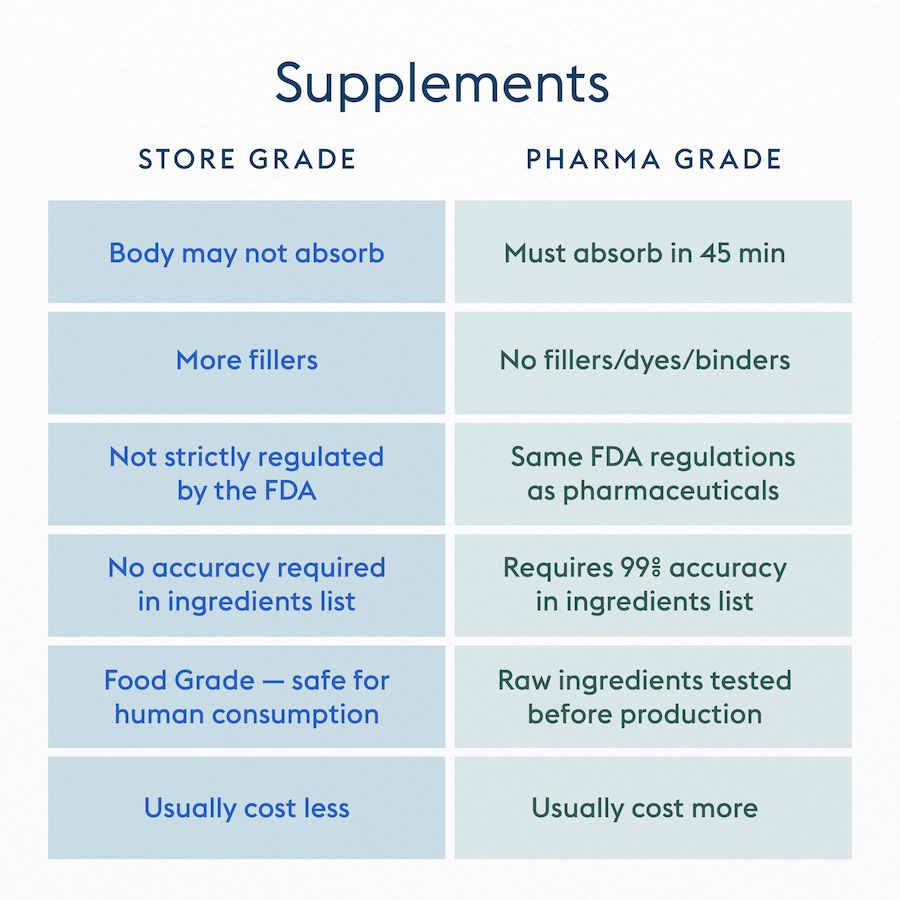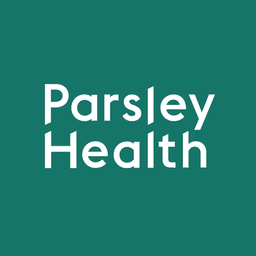Walk into any grocery store and you can’t miss the rapidly growing nutritional supplements aisle.
With so many people experiencing mineral and nutritional deficiencies, feeling tired and stressed out, the supplement industry has quickly turned into a multi-billion dollar machine. Studies show that 50% of Americans take multivitamins and one in five U.S. adults takes an herbal supplement.
But how do you know what supplements to take and how do you know what brands to trust?
Are you really getting what it says on the bottle?

The curtains on supplement industry have been peeled back many times now and what’s on the other side can be downright frightening.
The unfortunate truth about most of the supplements you may find on grocery store and drugstore shelves is that they are not required to go under the same FDA test for safety and effectiveness as prescription drugs. In fact, the FDA only tests 1% of the 65,000 dietary supplements that are on the market.
“While the FDA does not classify them as such, the terms ‘dietary supplement,’ ‘nutraceutical’ and ‘drug’ are legal definitions, not biological ones. At the end of the day herbs and supplements are powerful and have real biological effects on the body,” says Parsley Health founder and CEO Dr. Robin Berzin.
Many of these products are loaded with fillers and synthetic ingredients, with little to no active ingredients, so that the supplement companies can save costs. Many manufacturers are also cutting costs by putting in the inactive parts of specific herbs and botanicals, which don’t offer the same healing effects as the herb itself. So a supplement may say that it contains Saw Palmetto, but it doesn’t contain the part of the plant that actually has healing benefits (even though you’re paying for it.)
Another key issue with buying supplements off grocery store shelves is that most larger companies don’t have strict shipping and handling regulations, so before they even get to the store, they may have been exposed to heat, which can affect their quality.
In addition, many supplement companies have replaced their expiration dates with manufacturing dates, so there is no way for consumers to tell if the supplement they are taking is still good.
An even uglier truth is that many supplement companies are putting prescription drugs in their products. In 2004, the FDA instilled a ban on any dietary supplement containing Ephedra because of serious side effects and even deaths. However, many products that have been pulled from the shelves because they contain unauthorized prescription medication, often find themselves back on store shelves with the same ingredients.
On the consumer side of things, many people are under the impression that they can lead an unhealthy lifestyle, eating a nutritionally poor diet, not exercising and drinking lots of alcohol and just pop a few pills that will cancel out the negative effects. This is a huge myth and unfortunately one that the supplement industry often advertises.
This quick fix belief along with the desire to look and feel their best has too many people taking vitamins and minerals that they may not even need. In high doses, many of these can cause serious side effects, including serious diseases. Numerous studies have linked cases of specific cancers, heart attacks and increased lipid levels to improper use of supposedly “safe” dietary supplements, such as Vitamins, A, D, E and K and calcium.
Now, there are times when supplements are incredibly beneficial, but it’s best to follow the tips below before buying anything.
Eat a Healthy Diet
Most people can get the vitamins and minerals they need from a well balanced diet. If you want to get the best anti-aging products, then look to loading up on a colorful variety of fruits, veggies and leafy greens.
Improve Your Digestion
If your digestion is compromised, you most likely aren’t going to be absorbing the nutrients you are getting from your food or a supplement. A few simple tips to improve digestion are to get regular exercise, get 7-8 hours of sleep a night, practice daily meditation, eat a diet rich in fruits, veggies, whole grains, healthy fats and lean proteins, cook with spices and herbs and sip warm water throughout the day. In addition, keep track of foods you know are causing you discomfort and reduce or eliminate them for some time. Not sure what foods you may be sensitive to? Consult a skilled physician that can help you determine what those are.
Work With a Trained Physician
Before loading up on unnecessary pills and powders, go see a trained physician that can do the appropriate testing to see if you actually have deficiencies. Many times the symptoms you may be experiencing, such as low energy, sleep issues, low libido and weight gain, may not be dietary issues at all. At Parsley Health, we look to all aspects of your life to find out what is really causing the symptoms you are experiencing. If supplements are recommended, we have recommend ones that are of the highest quality and have been extensively tested and researched.
If a product seems too good to be true then it probably is. Remember, that there is very little regulation in the supplement industry. Do your research, ask questions and consult your physician.
